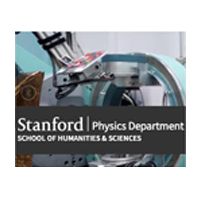
Extreme Electrodynamics of Neutron Stars and Black Holes
Hewlett 201
The development of classical electromagnetism and quantum electrodynamics are highpoints of nineteenth and twentieth century physics, respectively. Recent, remarkable discoveries, involving neutron stars and black holes, are taking electrodynamics into unfamiliar and “extreme” territory, requiring new theoretical approaches. Examples include 100 GT (10^15 Gauss) magnetic fields surrounding neutron stars (and possibly a hundred times greater within neutron stars), the production of radio waves with effective temperatures of 10^40 K, gravitational wave sources with powers as high as 10^49 W, the emission of neutrinos and gamma rays with energies in the PeV range and the acceleration of cosmic rays with energies up to million times greater than this, perhaps involving EMFs as large as 10^23 V, generated by spinning, black holes. The rapidly developing observational situation will be summarized, along with some of the competing ideas and approaches under active investigation.